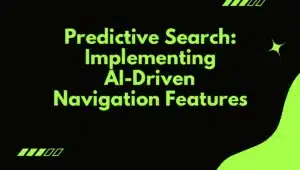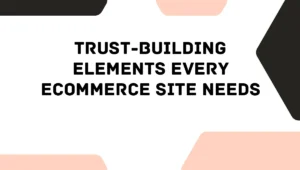How much Does Website Design Really Cost in 2025?
In the vibrant digital landscape of 2025, where pixels and pixels meet passion and purpose, the question of website design costs looms large for businesses and entrepreneurs alike. As businesses continue to morph and adapt to an ever-evolving online environment, understanding the financial commitments associated with website design has never been more critical.At Cham Agency, we believe that planning your digital presence is not just about dollars and cents—it’s an investment in the very heartbeat of your brand.
But how do we navigate the complexity of pricing in a world bursting with options? Is a higher price always synonymous with superior quality, or can budget-pleasant solutions deliver remarkable results? In this article, we delve deep into the factors that influence website design costs in 2025, shedding light on what businesses can expect as they embark on their digital journeys. Join us as we explore the nuances of modern web design pricing, offering clarity for those ready to elevate their online presence.
Understanding the Factors that Influence Website Design Costs
When it comes to website design costs, several factors come into play that can significantly influence the final price tag. First, the complexity of your website is a major determinant. A simple blog or portfolio site can cost less compared to a complex e-commerce platform or a custom request with multiple functionalities. The choice between a template-based design and a custom-built solution also dramatically alters cost. Templates may offer a cost-effective starting point, while custom designs ensure a unique user experience tailored to specific business needs.
Additionally, the scope of services involved will impact the overall expenditure. Here are some aspects that can contribute to the cost fluctuations:
- Responsive Design: Ensuring your website performs well across devices adds to the expense.
- SEO Optimization: Integrating search engine optimization strategies requires expertise that can increase costs.
- Content Creation: High-quality copywriting and visual assets can further boost your budget.
- Hosting and Maintenance: Ongoing costs for hosting and website upkeep should be factored in from the start.
To provide a clearer picture, consider the following breakdown of potential costs based on website types:
| Website Type | Estimated Cost Range |
|---|---|
| Blog/portfolio | $500 – $2,000 |
| Business Website | $2,000 – $10,000 |
| E-Commerce Store | $5,000 – $30,000+ |
| Custom Web Application | $10,000 – $100,000+ |
Breaking Down Different Pricing Models for web Design Services
When evaluating the cost of web design services, it’s crucial to understand the various pricing models implemented by agencies today. Each model offers distinct advantages depending on the specific needs of your project. One popular approach is the fixed-price model, where clients pay a predetermined amount for a specific scope of work. This model allows for clear budgeting and is ideal for projects with well-defined requirements. Alternatively, the hourly rate model provides flexibility, billed per hour of work rendered, making it suitable for ongoing adjustments or when the project scope may evolve. Additionally, projects can also adopt a retainer model, where clients pay a recurring fee for agreed-upon services, ensuring dedicated resources for long-term goals.
Understanding these pricing options can help you make an informed decision based on your budget and project needs. Below is a brief overview of each model’s unique characteristics:
| Pricing Model | Best For | advantages |
|---|---|---|
| Fixed-Price | Well-defined projects | Clear budget, no surprises |
| Hourly Rate | Flexible or evolving projects | Adaptability, cost control |
| Retainer Model | Long-term engagement | Consistent support, dedicated resources |
By evaluating these models, you can better align your budget with the services offered by Cham Agency, ensuring you receive the best value and quality for your web design project in 2025.
Evaluating Quality and Return on Investment in website Design
When evaluating the quality of website design, several factors come into play that directly influence the degree of return on investment (ROI). First and foremost, a well-designed website should not onyl appeal visually but also cater to user experience (UX) by ensuring faster load times and easy navigation. A website crafted with attention to detail can enhance customer satisfaction, leading to higher conversion rates. To gauge the quality of a website, consider aspects such as:
- Intuitive design: Does it guide the user effortlessly?
- Mobile responsiveness: How well does it perform on various devices?
- brand alignment: Does the design reflect the brand’s identity?
Return on investment in web design can be further assessed by analyzing key performance indicators (KPIs) that showcase the effectiveness of the design choices. Metrics such as increased traffic, improved engagement, and elevated sales figures can highlight the tangible benefits of your design investment. A well-structured website can lead to noticeable upticks in these KPIs, making the initial cost a worthwhile expense in the long run. Below is a simple table showcasing typical KPIs and their potential impacts on ROI:
| KPI | Potential Impact |
|---|---|
| Website Traffic | Increased visibility and reach |
| Conversion Rate | Higher sales and lead generation |
| Bounce Rate | Enhanced user engagement and retention |
| Session Duration | Stronger content interaction |
Future Trends in Website Design Pricing You Should Anticipate
As we look ahead to 2025, the landscape of website design pricing is evolving, driven by advancements in technology and changing consumer expectations. One important trend is the rise of subscription-based models for web design services. This approach allows businesses to manage costs more effectively,shifting away from conventional one-time payments. Clients can expect to see pricing tiers that offer varying levels of service, from basic templates to fully customized designs, ensuring greater flexibility and clarity in budgeting. Additionally, the integration of AI and automation tools is streamlining the design process, which may lead to reduced costs for end-users while increasing the overall quality of designs.
Moreover, the focus on user experience (UX) and mobile optimization is becoming paramount, prompting an increase in pricing structures that reflect expertise in these areas. In particular, designers who specialize in creating seamless mobile experiences or implementing advanced UX research methodologies are likely to command higher rates. Consequently, prospective clients should anticipate a shift towards premium pricing for enhanced features such as:
- Responsive designs that adapt to various devices
- Accessibility features ensuring compliance with regulations
- SEO optimization integrated during the design phase
This evolution means that businesses will need to reassess their web design budgets, aiming to invest in quality solutions that align with their long-term goals.
Future Outlook
In the ever-evolving landscape of digital presence, understanding the costs associated with website design in 2025 is critical for businesses and individuals alike. As we’ve explored, price tags can vary significantly based on unique requirements, technology choices, and the desired user experience. From DIY templates to bespoke solutions, the investment in a website is not merely an expense but a foundational step towards building an effective online identity.
As you navigate your own website design journey, remember to weigh the value of quality, functionality, and scalability against budget constraints. by doing so, you’re not just signing a check but forging a pathway to engage your audience and achieve your goals.The digital world is at your fingertips, and with the right approach, the cost of website design can lead to substantial returns.
Whether you’re embarking on a new project or revitalizing an old one, the insights gathered here can empower your decisions. In this fast-paced era, staying informed is your greatest asset. Here’s to creating a digital space that not only meets expectations but exceeds them.





